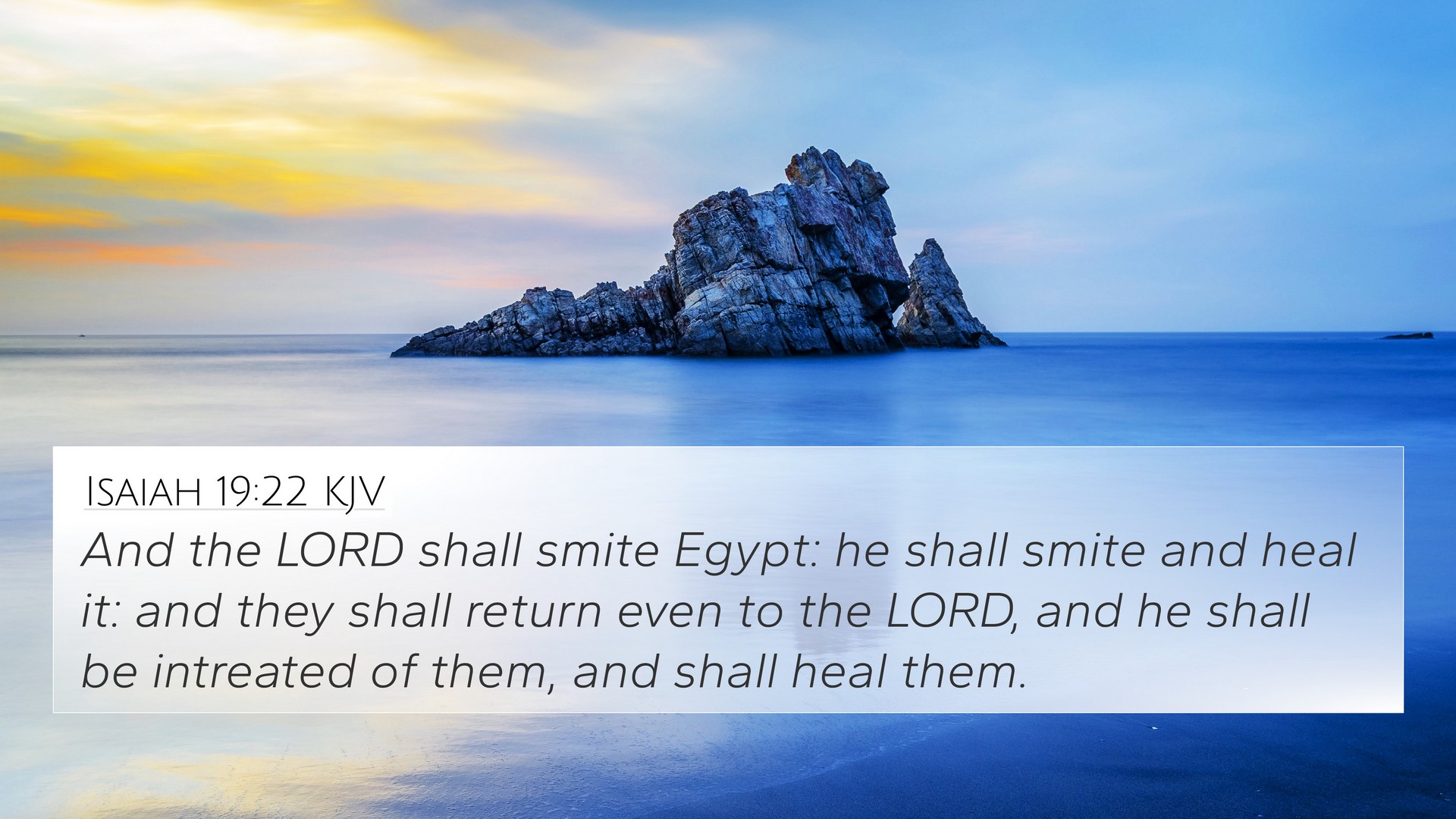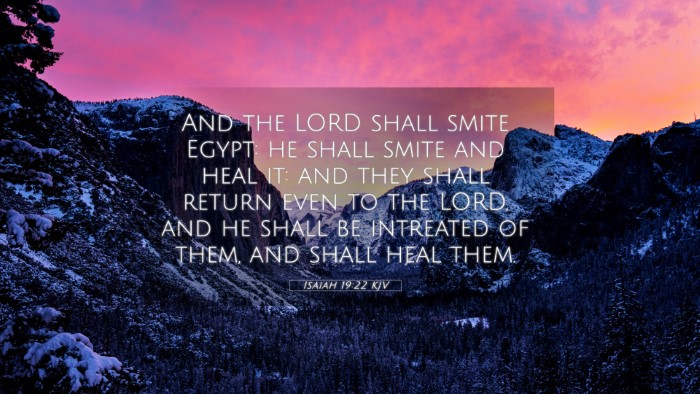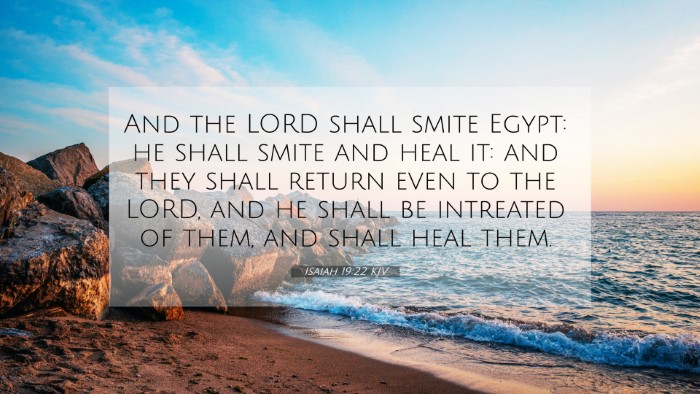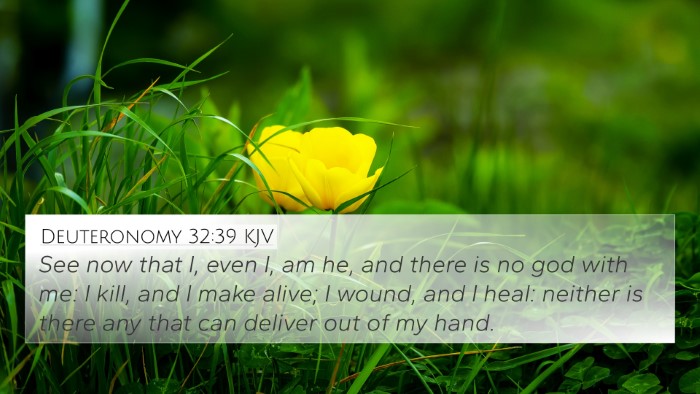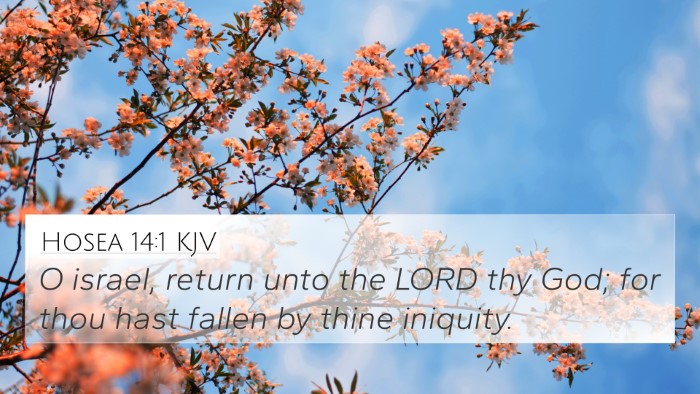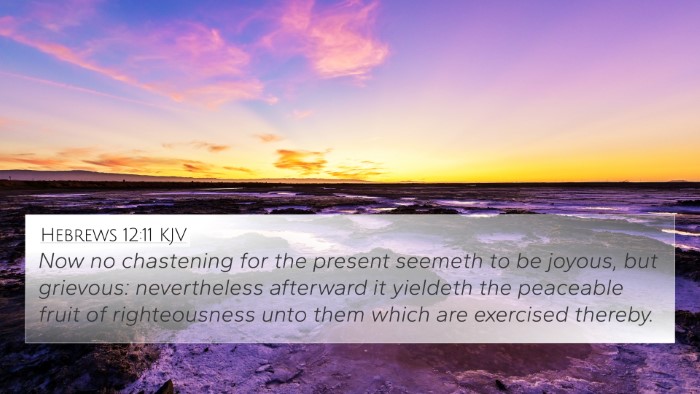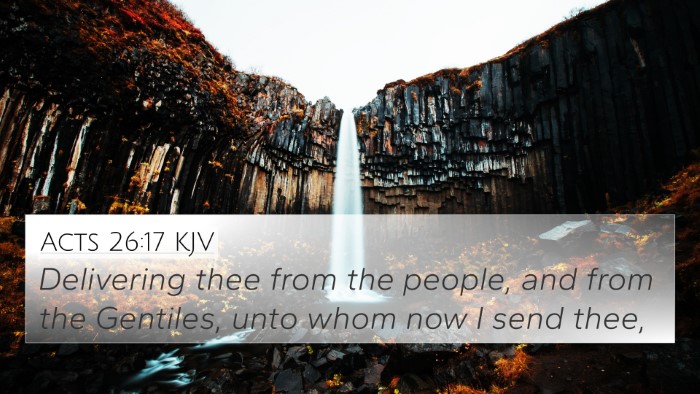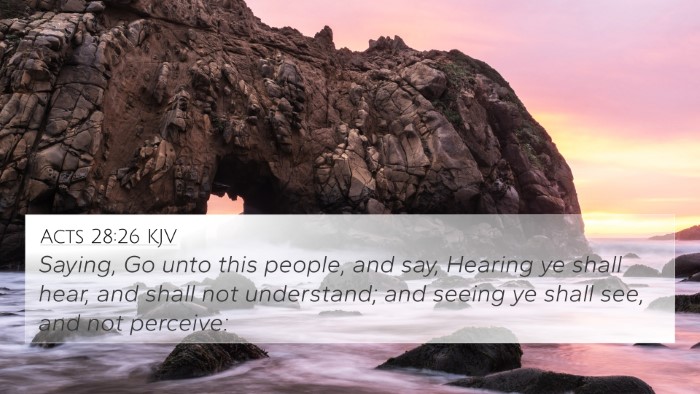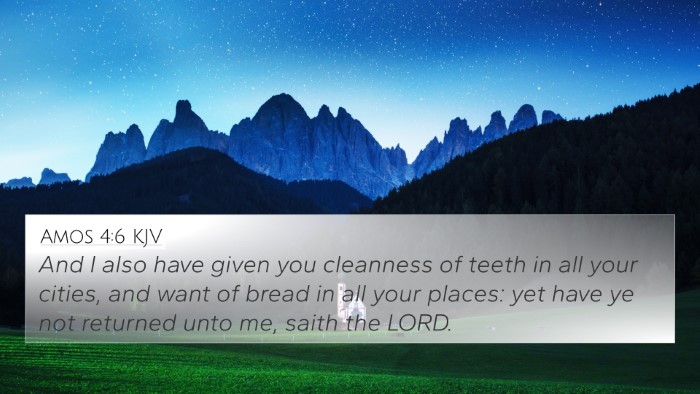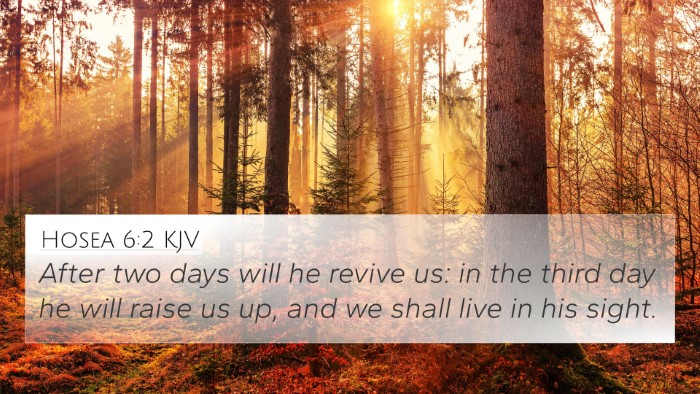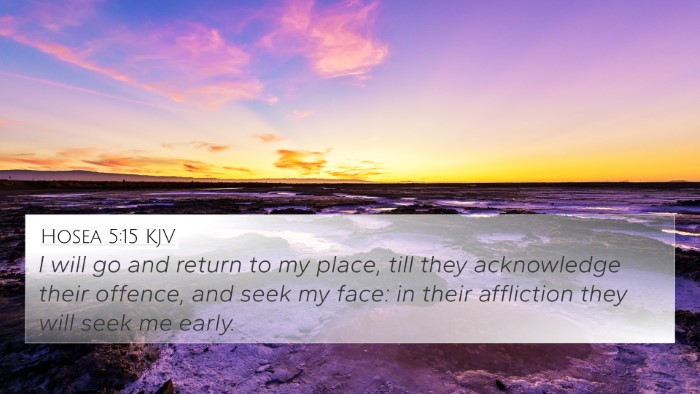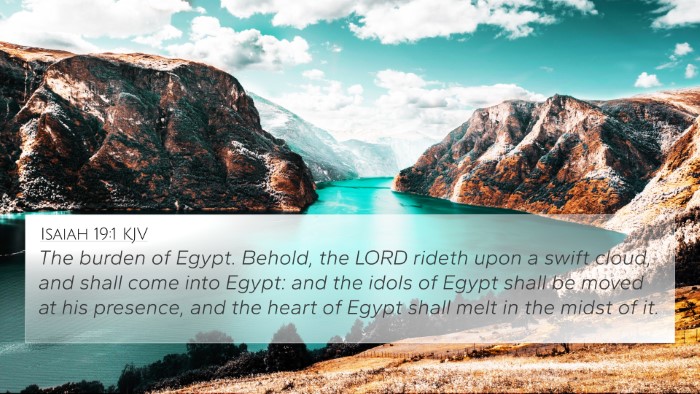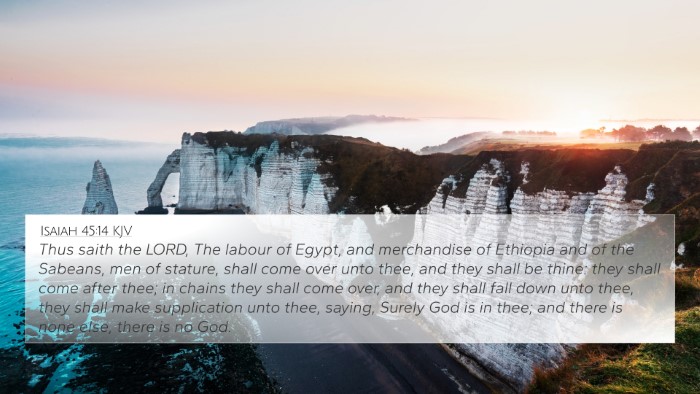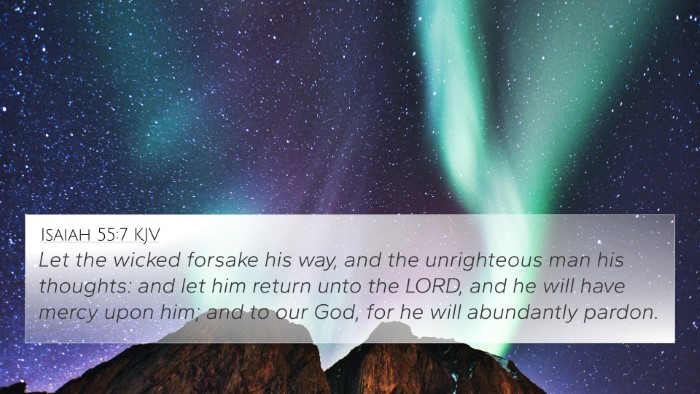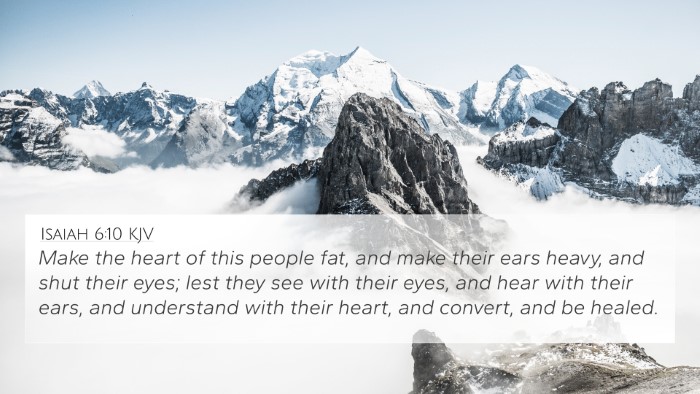Bible Verse: Isaiah 19:22
Verse Text: "And the LORD shall smite Egypt: he shall smite and heal it: and they shall return even to the LORD, and he shall be intreated of them, and shall heal them."
Summary and Interpretation of Isaiah 19:22
This verse serves as a powerful declaration of God's sovereignty over nations, particularly Egypt, and emphasizes themes of judgment, restoration, and the possibility of healing.
Contextual Understanding
Isaiah 19 addresses the coming judgments upon Egypt and the future restoration of the nation. This particular verse highlights the dual aspect of God’s dealings, showing that while He will strike Egypt as a form of discipline, healing will also follow. Matthew Henry emphasizes that God's judgments are not merely punitive but are intended to lead to repentance and restoration. Adam Clarke adds that the term "smite" indicates both a physical affliction and spiritual consequences, indicating that Egypt must acknowledge the sovereignty of Yahweh.
Key Themes
- Judgment: The verse begins with the assertion of divine judgment upon Egypt, implying the consequences of sin and rebellion against God.
- Healing: Despite the impending judgment, there is a promise of healing, revealing God's grace and willingness to restore those who turn back to Him.
- Repentance: The necessity of returning to the Lord is underscored, suggesting a condition for healing and restoration.
- Divine Sovereignty: God’s control over nations and His ability to enact both judgment and mercy highlights His ultimate authority in human affairs.
Commentary Insights
According to Albert Barnes, this passage illustrates the contrast between destruction and restoration. The healing of Egypt reflects a broader biblical theme where God’s justice is balanced with His mercy. Barnes points out the significance of Egypt’s return to the Lord as a voluntary act that signifies genuine repentance, echoing the prophet’s call throughout the Scriptures.
Henry further notes that even the fiercest judgments may ultimately lead to sincere worship among nations, as Egypt’s experience illustrates. This transformation showcases God’s desire for relationship rather than mere punishment. Adam Clarke emphasizes the hope contained within this verse, asserting that a nation that has endured God’s wrath can experience His kindness if it chooses to seek Him.
Bible Cross-References Related to Isaiah 19:22
- 2 Chronicles 7:14: Highlights the requirement for humility and prayer in response to God’s judgment.
- Jeremiah 3:12-14: God encourages Israel to return to Him after their unfaithfulness, similar to Egypt’s calling.
- Hosea 6:1: Addresses the themes of returning to God for healing following His wrath.
- Acts 3:19: Illustrates New Testament repentance and the promise of refreshing from the Lord.
- Luke 4:18: Connects to the theme of healing and restoration in Christ's ministry.
- Isaiah 53:5: Speaks of healing through suffering, paralleling the Restoration theme.
- Romans 2:4: God's kindness leads to repentance, mirroring the message from Isaiah.
Thematic Connections
This verse can be linked to several broader themes throughout the Scripture:
- Judgment & Mercy: Many biblical narratives, such as the Babylonian captivity, illustrate the cycle of judgment leading to eventual restoration (Lamentations 3:22-23).
- The Sovereignty of God: God's control over nations and their destinies is a recurring theme, especially in prophetic books (Daniel 4:17).
- Repentance & Healing: The need for repentance before healing is a common thread connecting both Testaments (1 John 1:9).
- Divine Intervention: Stories of God intervening on behalf of His people (Exodus 3:7-8) resonate with this verse’s healing promise.
Conclusion
Isaiah 19:22 stands as a timely reminder that while divine judgment is inevitable for nations and individuals, the hope of healing and restoration is always present for those who earnestly seek the Lord. The interplay of these themes underscores the profound nature of God’s character as just yet merciful, guiding humanity toward repentance and healing.
